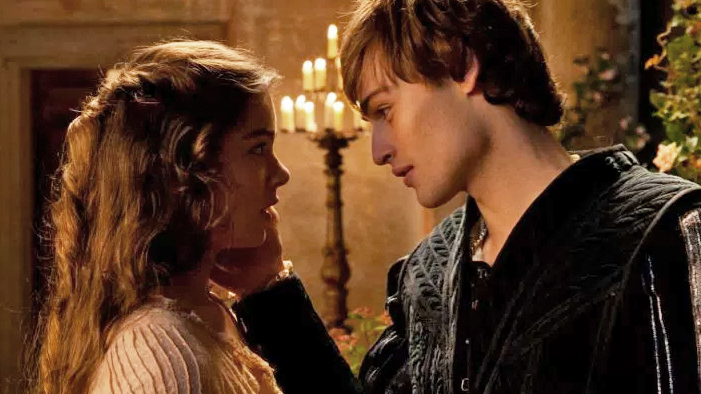How to Flirt, According to Shakespeare

If you’re anything like me, your idea of “flirting” involves both parties making eye contact for far too long and then simultaneously barfing out the romance words. For your sake, I hope you’re not like me. The world doesn’t need more of us. I hope your flirting technique is suave, courtly, and eloquent to the point that it’s borderline Shakespearean. For instance:
When you’re trying to be a bad boy:
“And, I pray thee now, tell me, for which of my bad parts did thou first fall in love with me?”
—Much Ado About Nothing, Act 6, Scene 2
When you’re playing hard to get:
“I pray you, do not fall in love with me, for I am falser than vows made in wine.”
—As You Like It, Act 3, Scene 5
When you’re REALLY playing hard to get:
“Thou art a flesh-monger, a fool and a coward.”
—Measure for Measure, Act 5, Scene 1
When you want to flirt but you’re confused by fractions:
“One half of me is yours, the other half yours.”
—The Merchant of Venice, Act 3, Scene 2
When you’re listing off your many admirable qualities, chief among them that you are a patient log-man:
“And for your sake am I this patient log-man.”
—The Tempest, Act 3, Scene 1
When you ask them out on a date and you can’t believe they said yes:
“But I am pigeon-liver’d and lack gall.”
—Hamlet, Act 2, Scene 2
When you have a crush on a girl and she asks you how much you like her, and you tell her you wouldn’t sell her:
“If heaven would make me such another world of one entire and perfect chrysolite, I’ld not have sold [you] for it.”
—Othello, Act 5, Scene 2
When you’re being extremely forward:
“I have immortal longings in me.”
—Antony and Cleopatra, Act 5, Scene 2
When you have a crush on your best friend but you don’t want to be obvious about it, so instead you tell them they have an ugly face:
“Where wilt thou find a cavern dark enough to mask thy monstrous visage?”
—Julius Caesar, Act 2, Scene 1
When you want to tell someone that you like them, but not in a normal way:
“Through proof of harness to my heart, and there ride on the pants triumphing!”
—Antony and Cleopatra, Act 4, Scene 8
When you want to emphasize how much you miss her when she’s gone, so you tell her that leaving her is as terrible as going to school:
“Love goes toward love as schoolboys from their books,
But love from love, toward school with heavy looks.”
—Romeo and Juliet, Act 2, Scene 2
When you’re not that good at making out, but you’re trying to put a positive spin on it:
“My love’s more richer than my tongue.”
—King Lear, Act 1, Scene 1
When you can’t think of a good compliment so you settle for telling them that their face looks like honor, truth, and loyalty:
“In thy face I see the map of honor, truth and loyalty.”
—Henry VI Part 2, Act 3, Scene 1
When you want to make your affections known but you don’t want to sound TOO eager:
“‘I hate’ from hate away she threw,
And saved my life, saying—’not you.'”
—Sonnet 145, lines 13-14













